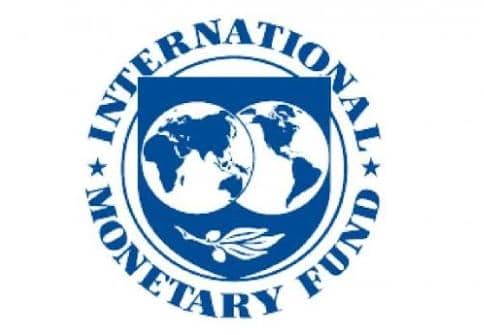Nigeria’s financial future is facing tough times as the International Monetary Fund (IMF) has warned that the 2025 national budget may not hold up due to falling oil prices, reduced crude production, and problems with executing major projects. In its latest Article IV consultation report released on Wednesday, the IMF urged the Federal Government to quickly adjust its spending and revenue plans to reflect the country’s current economic situation.
The IMF said the Federal Government must take action immediately to avoid slipping into a deeper financial crisis. It warned that Nigeria’s fiscal deficit could rise to 4.7% of the country’s Gross Domestic Product (GDP) in 2025, much higher than what was initially planned in the budget.
According to the IMF, the 2025 budget was prepared with very optimistic expectations, especially regarding oil revenue. But since April, global oil prices have dropped significantly, and Nigeria’s crude oil production has also fallen short of targets. The IMF noted that unless the government makes urgent policy adjustments, Nigeria’s finances could face even greater stress.
The report said, “The 2025 budget was based on optimistic hydrocarbon revenue projections, even before the price decline since April.” This has now created a huge gap between what the government expected and the current reality.
The IMF added that capital expenditure—money meant for infrastructure and development projects—is also at risk. Though the 2025 budget includes large capital spending, the IMF noted that Nigeria has a poor track record of executing such projects effectively. It warned that budgeted projects may not be delivered as expected, worsening the fiscal challenges and delaying much-needed infrastructure growth.
In addition, the IMF urged the government to ensure that savings from the fuel subsidy removal are properly accounted for and used to fund essential services. It said, “Ensuring that the fuel subsidy savings accrue to the government would yield the proposed neutral stance—the full-year savings are estimated at two per cent of GDP.” But if those savings are not realised and tax reforms do not bring in new revenue by 2025, Nigeria may be forced to cut its spending, particularly on recurring expenses like salaries and government operations.
The IMF further recommended that Nigeria adopt a “neutral fiscal stance” to maintain economic stability while protecting key investments in health, education, and infrastructure. It also emphasised the need to boost social support for the poorest Nigerians as inflation and food insecurity continue to rise.
As part of the solution, the IMF advised Nigeria to reduce its heavy reliance on oil income by expanding its tax base. This includes reforms in value-added tax (VAT) and corporate income tax systems. However, the Fund noted that such reforms will take time before they start producing results.
Reacting to the IMF’s warning, the Federal Government said it is aware of the economic challenges and is already taking steps to revise the budget to fit new oil price realities. In a statement by the Director of Information and Public Relations, Mohammed Manga, the Minister of Finance and Coordinating Minister of the Economy, Wale Edun, said the government is determined to maintain macroeconomic stability.
“The implementation of the 2025 budget is being carried out with a focus on safeguarding reform gains and ensuring economic stability,” the statement read. “The government continues to monitor developments in the international oil market and global trade environment and is taking responsive measures to mitigate potential risks while maintaining momentum toward inclusive growth.”
The IMF also pointed out the dangers of Nigeria’s increasing public debt, which rose to 53% of GDP in 2024 from 49% in 2023. The rise was mainly due to budget deficits and exchange rate depreciation. It warned that if reforms are not carried out, the country’s debt could become unsustainable. The Fund advised the government to consider new financing methods, such as public-private partnerships and pre-export financing, but warned that these must be well-managed to avoid worsening debt problems.
Meanwhile, the World Bank also raised concerns over Nigeria’s 2025 budget, calling it “overly ambitious.” It warned that the government might need to rely on the Central Bank of Nigeria’s (CBN) Ways and Means facility to cover funding gaps. President Bola Ahmed Tinubu signed the N54.99 trillion budget into law earlier this year—the highest in Nigeria’s history.
The World Bank said the government’s budget assumptions—such as oil prices at $75 per barrel and 2.06 million barrels per day production—may not be realistic. Speaking at an event in Abuja, the Bank’s Lead Economist for Nigeria, Alex Sienaert, said, “It’s a very ambitious budget. Even with strong revenue gains in 2024, meeting these revenue targets will be very hard.”
But Minister of Budget and Economic Planning, Senator Abubakar Bagudu, disagreed. He said the projections were modest and based on sound judgment. “They are not ambitious. Our premium oil grades attract higher prices, which justifies the revenue assumptions,” he said.
The IMF concluded by urging Nigeria to improve how it manages public spending, especially capital projects. It advised that future budgets should be based on realistic forecasts to allow for better planning and development. The Fund also praised recent economic reforms and improvements in the financial sector, including the Central Bank’s efforts to reduce inflation, which has dropped from 31% in 2024 to 23.7% in April 2025.
Still, the IMF warned that more work needs to be done to fight poverty, reduce debt, and ensure long-term economic growth.
